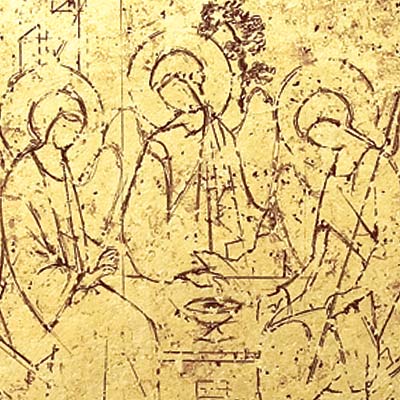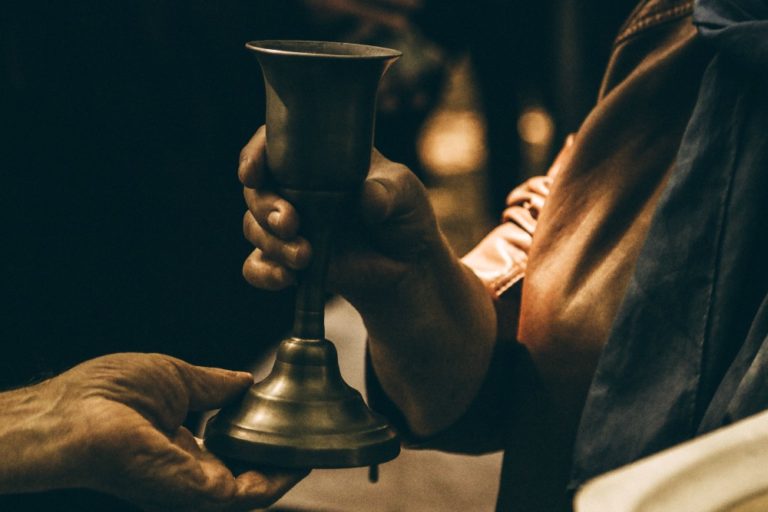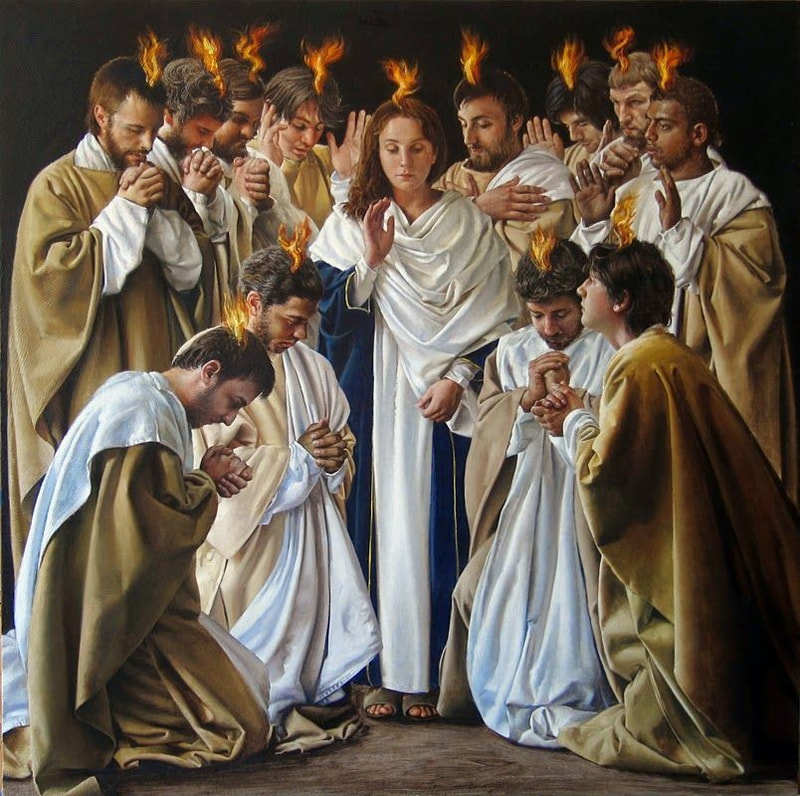Affirmation of Our Old Catholic Faith
"Moreover, in the Catholic Church itself, all possible care must be taken, that we hold that faith which has been believed everywhere, always, by all."
- St. Vincent of Lerins, Commonitory, 5th cent. A.D.
"Unity in necessary things; freedom in doubtful things; love in all things."
- Marco Antonio De Dominis, Archbishop of Split, De Repubblica Ecclesiastica, 1617 A.D.
1. We, the Old Catholic Diocese of the Southeast, establish these Belief Statements and Affirmations of the Catholic Faith which express the Revealed Truth entrusted to the Church by Christ and which are binding on all Members of the Diocese.
2. Christ – We believe in and affirm the faith of the ancient Christian Church: that the person of Jesus of Nazareth is the Messiah, the Christ, the Hope of Israel who has been revealed to us as the Son of God and who through his life, death, and resurrection brings salvation to the whole world.
3. Apostolic Succession - We have preserved our Catholic identity and apostolic succession through the Old Catholic, Roman Catholic, Anglican/Episcopal and Orthodox Churches, and hold that such apostolic succession is one essential aspect for the authentic transmittal of Catholic faith and its sacramental integrity.
4. Church – We believe and affirm that the Church of Jesus Christ embodies all who follow Jesus and are joined in an indissoluble union with Christ and one another through baptism as the People of God and the Body of Christ. This Body of Christ is One, Holy, Catholic, and Apostolic and is entrusted with continuing the saving work of Christ in the world through the proclamation of the Gospel and the celebration of the Sacred Mysteries which are the Sacraments.
5. Holy Spirit - We believe that the Holy Spirit speaks through all the voices of the Church: Laity, Clergy, and Bishops, in their separate yet interdependent roles as delineated herein. These voices all come together to speak as one voice at the Holy Synod as the sensus fidelium, which is essential to the synodal process. As in the early Church, we believe that all three voices of Laity, Clergy, and Bishops must be involved in the election of our bishops and continue to maintain this ancient practice in the Diocese and its Member Faith Communities.
6. Scripture – We believe and affirm the Sacred Scriptures that have been handed on to us through the Apostolic Tradition and are held in common with the historic Catholic Church, including the deutero-canonical books of the Old Testament. We affirm that these Sacred Scriptures are truly inspired by the human encounter with the Divine in history and are both reliable and authoritative in matters of faith and practice.
7. Sacraments – We believe and affirm that the Church in her very nature is Sacramental. Therefore, the work of the Church is essentially understood as a Sacramental Ministry. We believe, affirm and acknowledge that the Sacraments of the Church are Baptism, Confirmation, Holy Eucharist, Reconciliation, Anointing of the Sick, Marriage, and Holy Orders. The Sacraments are grace-filled encounters with the Divine. Through our participation in the celebration of these Sacraments we are renewed by the saving presence of the Resurrected Christ. Therefore, we believe and affirm that the Sacraments of the Church are requisite for an authentic and essential Catholic faith and practice.
8. Creed – We believe and affirm the Nicene and Apostles’ Creeds as true and faithful foundational statements of worldwide Catholic faith. These contain the basic Trinitarian and Christological dogmas to which these creeds testify and we accept. That is, we believe that Jesus of Nazareth is true God and true man, and that God is authentically identified in the Trinitarian designation of “Father, Son and Holy Spirit.” Nevertheless, these foundational creedal statements are to be understood and taught in the expression of each age, in order that each generation may understand and fully believe their truth.
9. Governance and Tradition –The supreme law of the Church is the Law of God, revealed in the person and teaching of Jesus the Christ, the Incarnate Son of God; through the Holy Scriptures; and in the Apostolic Tradition of the One, Holy, Catholic, and Apostolic Church.
We affirm the Catholic Tradition of synodal governance as expressed in the Trinitarian ecclesiology and polity of the Diocese. Synodal governance includes the participation of all three voices of laity, clergy, and the bishop in the governance of the Diocese in accordance with their respective roles as delineated herein. We adhere to the principle “in essentials unity, in non-essentials diversity, and in all things charity.” We affirm that the “essentials” of our Catholic faith are defined under this Constitution as essential to our unity and that no Member Faith Community, Clergy or Bishop may change, alter, or disregard any of these provisions.
10. Ecumenism and other historic catholic churches - Consistent with Old Catholic Tradition, we affirm the Bishop of Rome as "first among equals" without the later innovations of both universal jurisdiction and the infallibility of the office of the See of Peter. We respect our sisters and brothers of other catholic faith denominations, such as the Roman Communion, Orthodoxy, the Anglican Communion, the Episcopal Church, and pledge to work to bring ourselves closer to each other in the Love of Christ through ecumenical work.
11. Apostolic Tradition - The Apostolic Tradition is the deposit of Christian faith, celebration, and spiritual practice that comes from the Apostles of Jesus as articulated in the Epistle 3 of St. Jude: “the faith that was once and for all handed down and delivered to the people of God”. The Apostolic Tradition is understood as the foundation of Christian faith and sacramental life, which is then developed through each generation by the work of the Holy Spirit as the Church builds upon what has come before in the life of the universal church.
We believe that the Apostolic Tradition, the unbroken transmission, both oral and in writing, of the teachings of Christ and the Apostles, are the authoritative sources for educating all successive generations of Christians. The Apostolic Tradition is partly to be found in the Creeds, in the consensus of the great ecclesiastical bodies standing in historical continuity with the primitive Church, and from the written documents of all centuries. The Creeds can never be changed in substance, although there may be translational differences. Apostolic Tradition is to be applied, contextually to the historic time, using reason and pastoral application of the Gospel message of Christ’s love, justice and peace.
The Holy Spirit continues to work and speak to the Church. As such, and for the advancement of “good order,” the Church, over time has been organized and changed in areas of discipline so as to meet the needs of the People of God to advance their betterment in living a life in Christ. Because context and socio-historic changes take place, various changes, deletions, and additions to traditions have occurred throughout time to meet such needs. These changes, deletions and additions must be consistent with the Creeds and the Gospel mandate; both of which cannot be changed. These changes have been effectuated by way of agreements and decrees set forth at the various Ecumenical Councils and Synods throughout history.
We accept the teachings of the official seven Ecumenical Councils of the undivided Catholic Church, and only as far as they are in harmony with the Gospel and the teaching of the primitive Church and this Constitution.
We affirm that the Old Catholic Declaration of Utrecht, its amendments and its additions over time, are historical foundational documents as far as they are in conformity with the Gospel message of Jesus Christ. These documents function to understand the development of doctrine within the context and the history of the ancient Catholic Church, rather than as individual authoritative requirements of faith.
Notwithstanding the foregoing, neither may we alter, change, or revise the substantive faith content of the creedal statements known as the Nicene Creed, the Apostles’ Creed, nor any of the faith statements decreed under the seven Ecumenical Councils of the undivided Church.
We believe that because Apostolic Tradition has been, and should continue to be applied within the historic temporal context of the Church throughout the ages with regard to discipline and moral issues, that family planning, for example, should be seen as a personal and private decision, and that all who are prepared in accordance with this Constitution, regardless of gender, race, or sexual orientation, or gender identity, may be administered the Sacraments of the church including the Sacrament of Holy Orders.
- St. Vincent of Lerins, Commonitory, 5th cent. A.D.
"Unity in necessary things; freedom in doubtful things; love in all things."
- Marco Antonio De Dominis, Archbishop of Split, De Repubblica Ecclesiastica, 1617 A.D.
1. We, the Old Catholic Diocese of the Southeast, establish these Belief Statements and Affirmations of the Catholic Faith which express the Revealed Truth entrusted to the Church by Christ and which are binding on all Members of the Diocese.
2. Christ – We believe in and affirm the faith of the ancient Christian Church: that the person of Jesus of Nazareth is the Messiah, the Christ, the Hope of Israel who has been revealed to us as the Son of God and who through his life, death, and resurrection brings salvation to the whole world.
3. Apostolic Succession - We have preserved our Catholic identity and apostolic succession through the Old Catholic, Roman Catholic, Anglican/Episcopal and Orthodox Churches, and hold that such apostolic succession is one essential aspect for the authentic transmittal of Catholic faith and its sacramental integrity.
4. Church – We believe and affirm that the Church of Jesus Christ embodies all who follow Jesus and are joined in an indissoluble union with Christ and one another through baptism as the People of God and the Body of Christ. This Body of Christ is One, Holy, Catholic, and Apostolic and is entrusted with continuing the saving work of Christ in the world through the proclamation of the Gospel and the celebration of the Sacred Mysteries which are the Sacraments.
5. Holy Spirit - We believe that the Holy Spirit speaks through all the voices of the Church: Laity, Clergy, and Bishops, in their separate yet interdependent roles as delineated herein. These voices all come together to speak as one voice at the Holy Synod as the sensus fidelium, which is essential to the synodal process. As in the early Church, we believe that all three voices of Laity, Clergy, and Bishops must be involved in the election of our bishops and continue to maintain this ancient practice in the Diocese and its Member Faith Communities.
6. Scripture – We believe and affirm the Sacred Scriptures that have been handed on to us through the Apostolic Tradition and are held in common with the historic Catholic Church, including the deutero-canonical books of the Old Testament. We affirm that these Sacred Scriptures are truly inspired by the human encounter with the Divine in history and are both reliable and authoritative in matters of faith and practice.
7. Sacraments – We believe and affirm that the Church in her very nature is Sacramental. Therefore, the work of the Church is essentially understood as a Sacramental Ministry. We believe, affirm and acknowledge that the Sacraments of the Church are Baptism, Confirmation, Holy Eucharist, Reconciliation, Anointing of the Sick, Marriage, and Holy Orders. The Sacraments are grace-filled encounters with the Divine. Through our participation in the celebration of these Sacraments we are renewed by the saving presence of the Resurrected Christ. Therefore, we believe and affirm that the Sacraments of the Church are requisite for an authentic and essential Catholic faith and practice.
8. Creed – We believe and affirm the Nicene and Apostles’ Creeds as true and faithful foundational statements of worldwide Catholic faith. These contain the basic Trinitarian and Christological dogmas to which these creeds testify and we accept. That is, we believe that Jesus of Nazareth is true God and true man, and that God is authentically identified in the Trinitarian designation of “Father, Son and Holy Spirit.” Nevertheless, these foundational creedal statements are to be understood and taught in the expression of each age, in order that each generation may understand and fully believe their truth.
9. Governance and Tradition –The supreme law of the Church is the Law of God, revealed in the person and teaching of Jesus the Christ, the Incarnate Son of God; through the Holy Scriptures; and in the Apostolic Tradition of the One, Holy, Catholic, and Apostolic Church.
We affirm the Catholic Tradition of synodal governance as expressed in the Trinitarian ecclesiology and polity of the Diocese. Synodal governance includes the participation of all three voices of laity, clergy, and the bishop in the governance of the Diocese in accordance with their respective roles as delineated herein. We adhere to the principle “in essentials unity, in non-essentials diversity, and in all things charity.” We affirm that the “essentials” of our Catholic faith are defined under this Constitution as essential to our unity and that no Member Faith Community, Clergy or Bishop may change, alter, or disregard any of these provisions.
10. Ecumenism and other historic catholic churches - Consistent with Old Catholic Tradition, we affirm the Bishop of Rome as "first among equals" without the later innovations of both universal jurisdiction and the infallibility of the office of the See of Peter. We respect our sisters and brothers of other catholic faith denominations, such as the Roman Communion, Orthodoxy, the Anglican Communion, the Episcopal Church, and pledge to work to bring ourselves closer to each other in the Love of Christ through ecumenical work.
11. Apostolic Tradition - The Apostolic Tradition is the deposit of Christian faith, celebration, and spiritual practice that comes from the Apostles of Jesus as articulated in the Epistle 3 of St. Jude: “the faith that was once and for all handed down and delivered to the people of God”. The Apostolic Tradition is understood as the foundation of Christian faith and sacramental life, which is then developed through each generation by the work of the Holy Spirit as the Church builds upon what has come before in the life of the universal church.
We believe that the Apostolic Tradition, the unbroken transmission, both oral and in writing, of the teachings of Christ and the Apostles, are the authoritative sources for educating all successive generations of Christians. The Apostolic Tradition is partly to be found in the Creeds, in the consensus of the great ecclesiastical bodies standing in historical continuity with the primitive Church, and from the written documents of all centuries. The Creeds can never be changed in substance, although there may be translational differences. Apostolic Tradition is to be applied, contextually to the historic time, using reason and pastoral application of the Gospel message of Christ’s love, justice and peace.
The Holy Spirit continues to work and speak to the Church. As such, and for the advancement of “good order,” the Church, over time has been organized and changed in areas of discipline so as to meet the needs of the People of God to advance their betterment in living a life in Christ. Because context and socio-historic changes take place, various changes, deletions, and additions to traditions have occurred throughout time to meet such needs. These changes, deletions and additions must be consistent with the Creeds and the Gospel mandate; both of which cannot be changed. These changes have been effectuated by way of agreements and decrees set forth at the various Ecumenical Councils and Synods throughout history.
We accept the teachings of the official seven Ecumenical Councils of the undivided Catholic Church, and only as far as they are in harmony with the Gospel and the teaching of the primitive Church and this Constitution.
We affirm that the Old Catholic Declaration of Utrecht, its amendments and its additions over time, are historical foundational documents as far as they are in conformity with the Gospel message of Jesus Christ. These documents function to understand the development of doctrine within the context and the history of the ancient Catholic Church, rather than as individual authoritative requirements of faith.
Notwithstanding the foregoing, neither may we alter, change, or revise the substantive faith content of the creedal statements known as the Nicene Creed, the Apostles’ Creed, nor any of the faith statements decreed under the seven Ecumenical Councils of the undivided Church.
We believe that because Apostolic Tradition has been, and should continue to be applied within the historic temporal context of the Church throughout the ages with regard to discipline and moral issues, that family planning, for example, should be seen as a personal and private decision, and that all who are prepared in accordance with this Constitution, regardless of gender, race, or sexual orientation, or gender identity, may be administered the Sacraments of the church including the Sacrament of Holy Orders.




